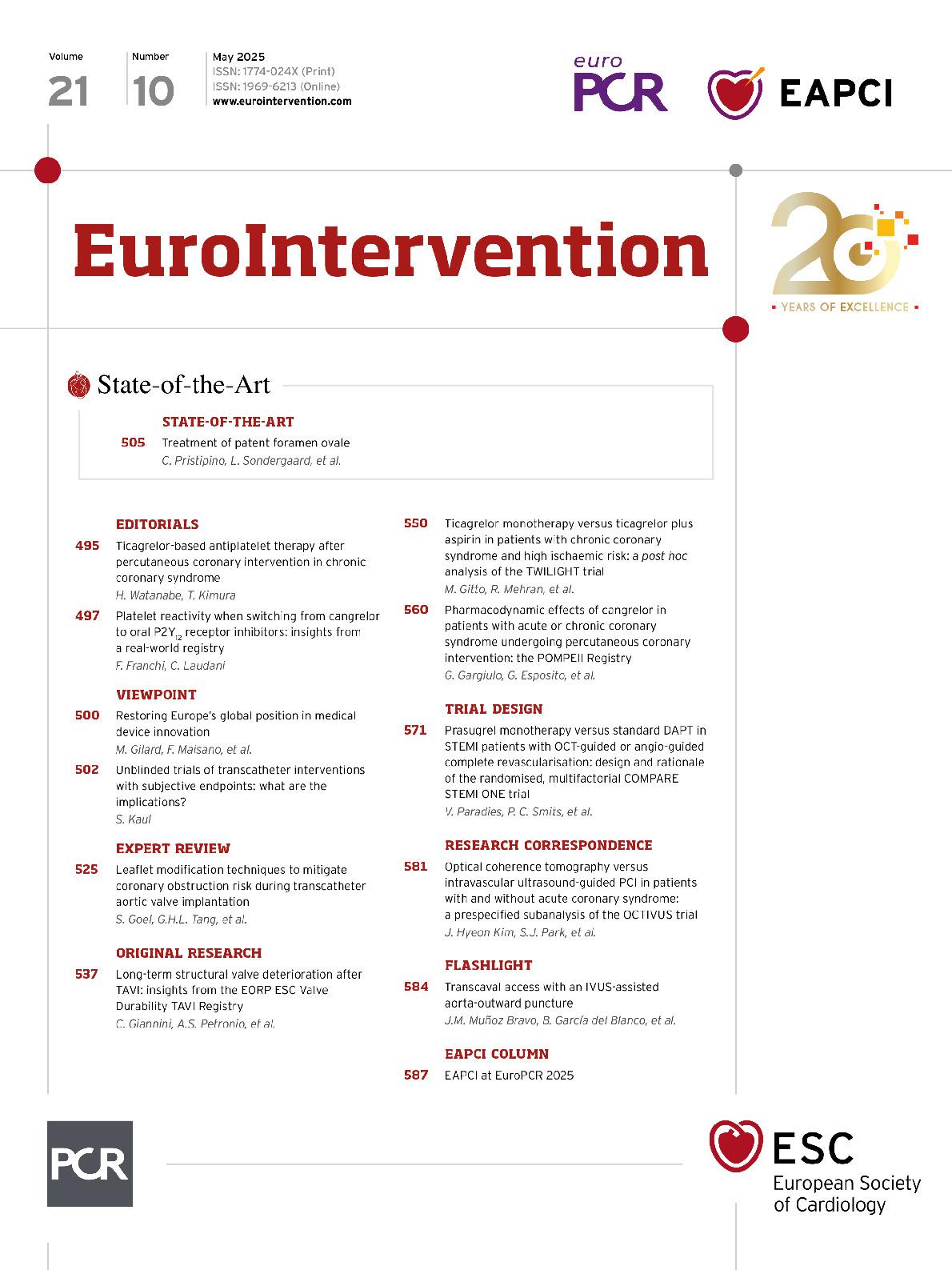Research in Europe has historically driven cardiovascular (CV) device innovation, a cornerstone of advancements in our speciality. Patients, who are central to invasive CV procedures and device implantation, benefit from life-saving, minimally invasive treatments that often lead to quicker recovery and improved quality of life. Percutaneous coronary intervention, transcatheter aortic valve implantation, percutaneous mitral valve repair, and cardiovascular implantable electronic devices exemplify innovations that have enabled millions of patients worldwide to enjoy better outcomes.
At a time when American support for scientific research, particularly medical research, has rapidly diminished, accompanied by sustained attacks on staff and the funding of US Department of Health and Human Services (HHS) agencies, such as the National Institutes of Health (NIH) or the U.S. Food and Drug Administration (FDA), research and innovation in Europe have taken on a new level of importance – and urgency.
To ensure continued progress, Europe must foster an environment that is conducive to medical technology development and validation. This approach not only sustains innovation but also maintains the highest safety standards.
The European Union’s (EU) Medical Device Regulation (MDR), adopted in April 2017, sought to enhance safety, efficacy, and transparency of existing and innovative medical devices. However, its implementation – delayed due to COVID-19 – has introduced significant challenges, including stricter clinical evidence requirements, longer approval times, increased costs, and more complex clinical trials. These hurdles have stifled innovation and hindered patient access to breakthrough devices, disproportionately affecting small and medium-sized enterprises that drive much of the innovation in this field.
The estimated time for device certification under the MDR now averages 13-18 months (twice the historical norm), with class III devices often requiring even longer. This backlog impacts access to widely used devices and presents significant barriers for niche treatments, such as those for rare cardiovascular and congenital conditions. Paediatric cardiology, in particular, has been adversely affected, as the absence of timely re-certification limits the availability of life-saving devices tailored to the needs of individual children. At the same time, manufacturers faced with elevated regulatory costs and uncertainty are increasingly withdrawing low-volume but high-need devices, forcing reliance on outdated alternatives.
In sharp contrast, other regions such as the United States, Japan, India, and Australia have streamlined certification processes for medical devices. The resulting gap in access to innovative treatments between EU patients and those in other regions continues to widen.
The EU has successfully implemented accelerated pathways for pharmaceuticals, such as the PRIority MEdicines (PRIME) programme, which facilitate the evaluation and authorisation of breakthrough drugs. However, no comparable mechanism exists for medical devices in the EU, unlike early feasibility studies or breakthrough certification introduced by the FDA. This absence exacerbates delays, particularly for patients with unmet needs or debilitating conditions, further impacting Europe’s ability to remain clinically and economically competitive on a global scale.
On 3 December 2024, the EU Council of Health Ministers mandated the creation of a dedicated pathway for breakthrough technologies under the MDR. The Council called for “specific pathways for technologies addressing unmet clinical needs, developed with scientific and advisory support from the European Medicines Agency (EMA) and expert panels”. This pathway aims to guarantee early access to innovations, ensure global competitiveness, and maintain high safety standards.
We support the efforts of the European Society of Cardiology (ESC) and its commitment “to actively participate” in the EU’s consultation process, as well as the activities of the ESC Cardiovascular Round Table (CRT), which has echoed this determination through strategic forums. They propose the inclusion of unmet needs and study design advice in device development programmes, guided by collaboration among physicians, patients, trialists, regulators, payers, and industry stakeholders.
As the MDR undergoes further evaluation in 2025, key stakeholders advocate a dedicated EU priority review process for novel medical devices. This initiative would foster equitable patient access, enhance clinical and innovation excellence, and attract further investment into the EU. By establishing such a process, Europe can seize the opportunity provided by stalled developments in the USA, whilst also competing with global regulatory advances in Japan, the United Kingdom, India and Australia, thereby ensuring that European patients benefit from the earliest access to innovative medical devices to complement the timely, high-quality care they deserve.
Conflict of interest statement
B. Prendergast has received speaker fees from Edwards Lifesciences; chairs a trial data safety and monitoring committee for Valvosoft, and is a trial steering committee member for Medtronic. W. Wijns has been a medical advisor for Rede Optimus; and is a co-founder of Argonauts, which is an innovation facilitator. A. Baumbach has received speaker fees from Biotronik and MicroPort; consultancy fees from Pi-Cardia, Faraday, Meril Life Sciences, and JenaValve. F. Maisano has received grant and/or research support from Abbott, Medtronic, Edwards Lifesciences, Biotronik, Boston Scientific, NVT, and Terumo; consulting fees and honoraria from Abbott, Medtronic, Edwards Lifesciences, SwissVortex, Perifect, Xeltis, Transseptal Solutions, Cardiovalve, and Magenta; has royalty income/IP rights with Edwards Lifesciences; and is a shareholder (including share options) of CardioGard, Magenta, SwissVortex, Transseptal Solutions, Occlufit, 4Tech, and Perifect. The other authors have no conflicts of interest to declare.

